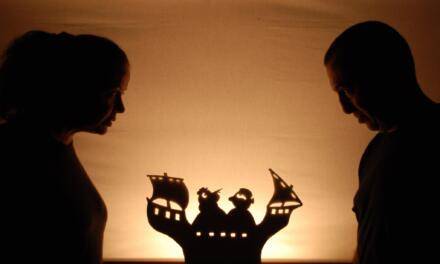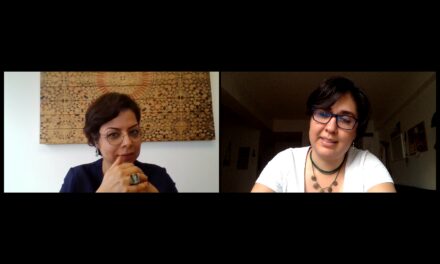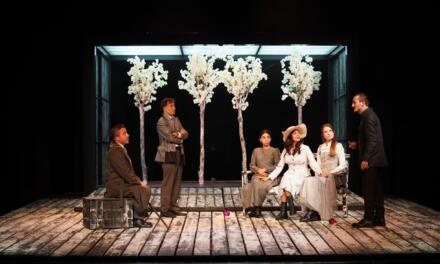The life of Aşık Veysel, who was a Turkish wandering poet-musician also known as a bard, has been brought to the stage by the Ankara Metropolitan Municipality Başkent Theaters.
Famous blind Turkish bard Aşık Veysel’s life story was commemorated with a theater play on the 123rd anniversary of his birth. The theater play titled, Kim Demiş Karanlık (Who Says It is Dark), tells the story of his life in three parts; namely, childhood, marriage and the post-Republican era, is a two-act play which greeted spectators at Başkent Theaters last week.
Speaking to Anadolu Agency (AA), General Art Director of Ankara Metropolitan Municipality Başkent Theaters, Mehmet Tahir İkiler said that İshak 2.Tekgül assumed the role of Aşık Veysel in the play titled, Hayal Kahvesi (Dream Coffee), which was brought to the stage last year, and the idea of staging the life story of the famous bard was borne out of the play.
Explaining about the Sufi side of Aşık Veysel and the deep meaning behind his poems which affected him very much during his searches, İkiler said that they gave place to Aşık Veysel’s untold stories which also haven’t been staged until today.
Reiterating that Aşık Veysel taught at the Village Institutes by the favor of poet Ahmet Kutsi Tecer, İkiler went on to say, “There are many surprising events in the play. For instance, Aşık Veysel says that a man is tall even though he can’t actually see the man. The people around him are surprised, and they ask him how he was able to see the man. He can’t see actually, but he can feel things. I have observed that Aşık Veysel reflects his heart in his poems, through his feelings. He wrote nice, meaningful words that people with eyesight simply cannot understand.”
İkiler spoke about the theater play, which looks at the life of Aşık Veysel in three parts including childhood, marriage and the post-Republican period, reminding that the bard didn’t write any folk music until the age of 40.
“The hardest thing was putting a person on the stage who hadn’t written any folk music prior to the age of 40. Veysel played the bağlama [a Turkic, stringed musical instrument] but he always said that he was selling a work of masters. He performed the compositions of other masters until he began to produce his own songs. Therefore, we couldn’t add his most famous folk songs to our play until after he turned 40,” the art director said.
İkiler explained that this is why they created a different concept and put an orchestra which sang folk songs in these parts on the left part of their stage.
Implying that 2.Tekgül also knows how to play bağlama and it affected him deeply, İkiler added, “The spectators of this play get the opportunity to see an unknown part of Aşık Veysel. They feel how a blind man could see and how he wrote his songs.”
İkiler referred to the bard’s famous words: “Who said it is dark? There is such a broad and beautiful world inside me that nobody can see or understand.”
The play which premiered last week will be onstage until the end of May.
Actor İshak 2.Tekgül also said that he has been a stage actor for 20 years, adding that Veysel has an identity that should be performed with deep feelings. Suggesting that those who watch the play will wonder what worse things can happen in a person’s life, 2.Tekgül continued, “Veysel didn’t live long but he piled one trouble on top of another. He showed us the summit of love. Love means giving unrequitedly. We see it in him. He endured his pain in silence. You could see some rising in his words sometimes but he smoothed everything over in the end. He was such a humble person that when the love of his life eloped with someone else, he gave her the only money he had by hiding it in her shoes. We actually didn’t want to mention this story in our play but we conveyed it in a symbolic, indirect way.”
This post originally appeared in the Daily Sabah on October 23, 2017, and has been reposted with permission.
This post was written by the author in their personal capacity.The opinions expressed in this article are the author’s own and do not reflect the view of The Theatre Times, their staff or collaborators.
This post was written by Daily Sabah.
The views expressed here belong to the author and do not necessarily reflect our views and opinions.


















